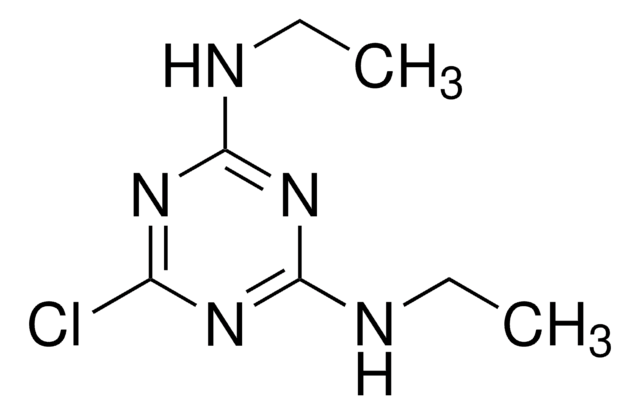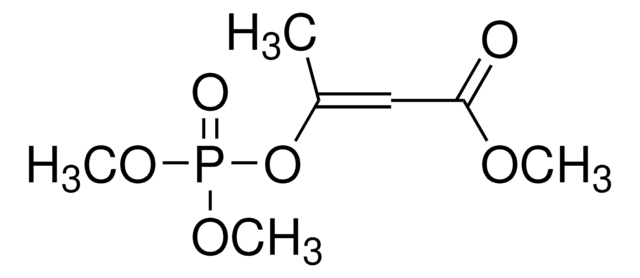34054
Simazine-d10
PESTANAL®, analytical standard
Synonyme(s) :
2,4-Bis(pentadeuteroethylamino)-6-chloro-1,3,5-triazine
About This Item
Produits recommandés
Qualité
analytical standard
Niveau de qualité
Gamme de produits
PESTANAL®
Durée de conservation
limited shelf life, expiry date on the label
Technique(s)
HPLC: suitable
gas chromatography (GC): suitable
Application(s)
agriculture
environmental
Format
neat
Changement de masse
M+10
Chaîne SMILES
[2H]C([2H])([2H])C([2H])([2H])Nc1nc(Cl)nc(NC([2H])([2H])C([2H])([2H])[2H])n1
InChI
1S/C7H12ClN5/c1-3-9-6-11-5(8)12-7(13-6)10-4-2/h3-4H2,1-2H3,(H2,9,10,11,12,13)/i1D3,2D3,3D2,4D2
Clé InChI
ODCWYMIRDDJXKW-MWUKXHIBSA-N
Catégories apparentées
Description générale
Application
- marine sediments by pressurized liquid extraction combined with stir bar sorptive extraction and thermal desorption, followed by gas chromatography–triple quadrupole mass spectrometry (TD–GC–MS/MS QqQ)
It may be used as an analytical reference standard for the estimation of analyte in:
- surface water samples using online solid phase extraction, followed by liquid chromatography–tandem mass spectrometry (SPE–LC–MS/MS)
Informations légales
Produit(s) apparenté(s)
Mention d'avertissement
Warning
Mentions de danger
Conseils de prudence
Classification des risques
Acute Tox. 4 Oral - Aquatic Acute 1 - Aquatic Chronic 1 - Carc. 2
Code de la classe de stockage
11 - Combustible Solids
Classe de danger pour l'eau (WGK)
WGK 3
Point d'éclair (°F)
Not applicable
Point d'éclair (°C)
Not applicable
Équipement de protection individuelle
dust mask type N95 (US), Eyeshields, Gloves
Choose from one of the most recent versions:
Déjà en possession de ce produit ?
Retrouvez la documentation relative aux produits que vous avez récemment achetés dans la Bibliothèque de documents.
Les clients ont également consulté
Notre équipe de scientifiques dispose d'une expérience dans tous les secteurs de la recherche, notamment en sciences de la vie, science des matériaux, synthèse chimique, chromatographie, analyse et dans de nombreux autres domaines..
Contacter notre Service technique










